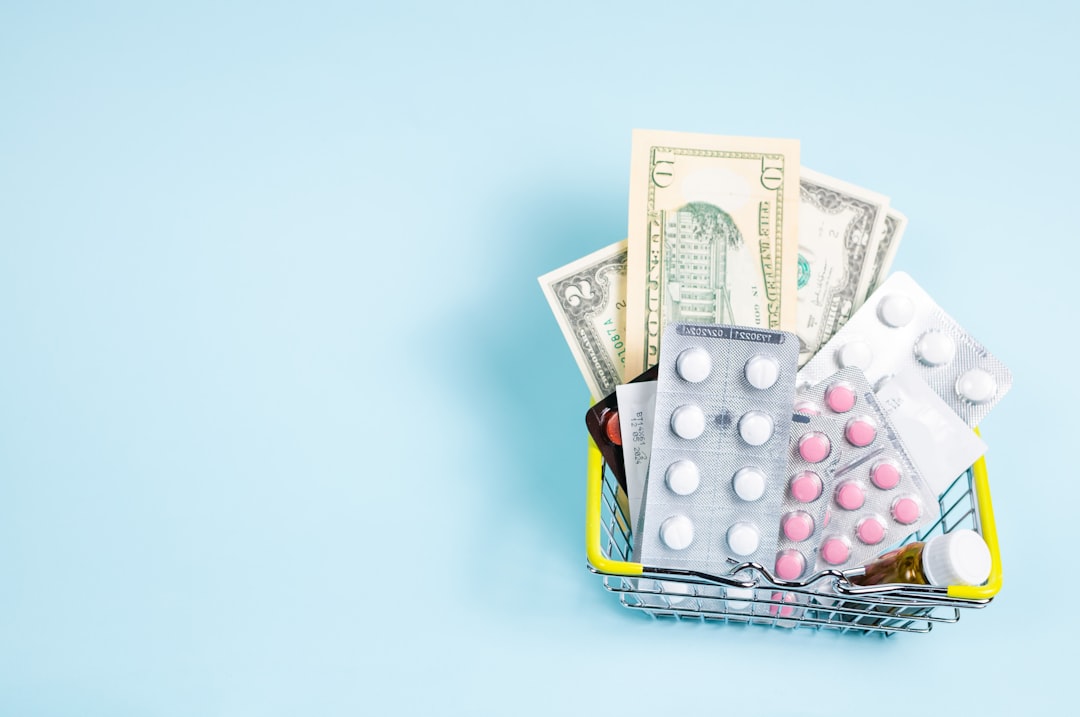- The Daily Tonic
- Posts
- Biden takes on drug prices.
Biden takes on drug prices.
Plus: Delicious recipes that also pack a punch!
"The true measure of any society can be found in how it treats its most vulnerable members." - Mahatma Gandhi
Thursday. Major U.S. pharmacies are stocking up on over-the-counter Narcan — the easy-to-use nasal spray that can save the life of someone overdosing on opioids. But at $45 a pop, there's concern about how affordable this will be for the people who need it most. Why are drugs so expensive in the U.S.? And what are we doing to change that? Well, there might be hope for meaningful change coming down the pipeline. Let’s dive in.
Together with Inside Hotels
Hotels We Love: Hotel Washington
Washington DC may be more famous for its monuments than its views, but what if we told you that we knew a place you could get both?
Hotel Washington, which offers stunning, sweeping views of the Washington Monument from its rooftop bar as well as a striking proximity to the White House (it’s just across the street). The on-site spa is super luxe, with to-die-for treatments you’ll appreciate after a long day seeing the sights. If you’re looking for a stay right in the heart of the action, you’ll love it here.

Biden Takes On High Drug Prices
In a significant move aimed at lowering prescription drug costs for Americans, the Biden administration recently revealed a list of ten prescription drugs that will be subject to negotiations with Medicare. These drugs include well-known treatments like the blood thinner Eliquis, co-produced by Bristol-Myers Squibb and Pfizer, and the diabetes medication Jardiance, developed by Eli Lilly and Boehringer Ingelheim.
And as a clear sign that we are finally doing something right, Big Pharma is pissed, viewing this as one of the most substantial challenges and threats they’ve faced in a long time. In typical Big Pharma fashion, they are getting their lawyers together and building their case to stop these price negotiations from happening because, well, profits.
So, how did we get here? Historically, Medicare, which covers healthcare for 65 million Americans, has been unable to negotiate drug prices with pharmaceutical manufacturers directly. However, this changed last year when Democrats incorporated this measure into their Inflation Reduction Act.
The idea behind this change is to leverage the bargaining power of the largest healthcare buyer in the United States, potentially saving the government and consumers billions of dollars on overpriced medications.
Surprisingly, there is broad public support for this policy — it is actually something that Team Blue and Team Red agree on. According to recent surveys, nearly 90% of Democrats and 77% of Republicans are in favor of Medicare negotiating drug prices. This likely stems from the fact that, as of 2019, the United States spent roughly twice as much on prescription drugs as peer countries.
Major pharmaceutical companies, including J&J, Merck, and Bristol, have already taken legal action against the government, arguing that this Medicare negotiation initiative is unconstitutional. They specifically claim that the Biden administration is violating the Fifth Amendment, which prohibits seizing private property for public use without fair compensation. Additionally, the pharmaceutical industry argues that by limiting drugmakers’ revenues, the government may discourage the development of future life-saving treatments.
The new drug prices won’t go into effect until 2026, but legal battles may take this issue to the Supreme Court before then.
This announcement by the administration is a big deal, marking a critical step towards addressing the issue of high drug prices in the United States. It comes after years of debate and a growing recognition that drug costs must be more manageable for the average American. It has taken us a long time to get here, but it’s better late than never.
The drug manufacturers have a little over a month to decide whether to participate in these negotiations or resist them. Those who choose not to negotiate with Medicare could face substantial financial penalties. They may be subject to an excise tax of up to 95% of their U.S. sales or may opt to withdraw their drugs from Medicare and Medicaid coverage, effectively excluding them from these large markets.
Looking forward, the Centers for Medicare and Medicaid Services will present price offers to drug companies by February 1, with negotiations ongoing until August next year. The final maximum fair prices for the drugs will be published by September 1, 2024, and these prices will take effect in 2026. It’s a slow process, but at least there is some hope of positive change coming out of the other side.
The key takeaway? The Biden Administration’s announcement of drugs subject to price negotiations is a big step in the right direction. However, ongoing legal challenges may slow down or halt the negotiation process altogether. The pharmaceutical industry has already initiated eight lawsuits against the Medicare drug negotiation process, and additional legal battles could follow the recent announcement.
So, will this all turn into a big nothing sandwich by the time it all ends up in court? Maybe, but at least we can hope!
Tonic Shots
1. Gumbo Full Of Veggies!

Veggies are packed with fiber, which is great for digestion and helps keep you satiated throughout the day. Enjoy this veggie gumbo!
2. Protein On-The-Go

A little chicken salad in the fridge can be the ultimate protein hack to get through the week. Enjoy!
3. It Doesn’t Get More Refreshing Than This

This key lime fruit cup in the perfect snack for the end of summer. Enjoy!
Keep Reading
Love The Daily Tonic? Here’s another newsletter you may love too:
|
How was today's newsletter? |


